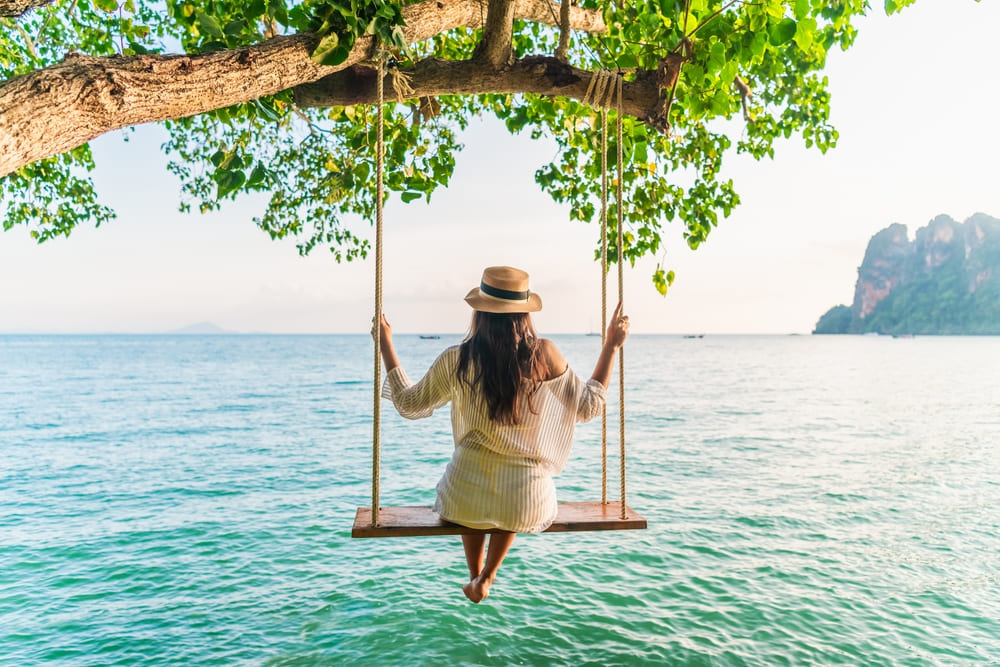


We’ve all been told many times that we need to take vacations often enough to recharge our body’s batteries and renew our spirits. But as many of us know, that’s easier said than done.
There are many scientific reasons why taking off from the routine and going places has immense health benefits − and we’ll look at them in this article.
But there is also a fair amount of evidence that says people neglect all such proof of the health value of holidays and cite many excuses that don’t measure up.
For the sake of our well-being, all of us need to put our usual preoccupations second and our health first. Let’s look at how we can all gain from listening to what research tells us.
According to Adewale Maye from the Center for Economic and Policy Research, the U.S. leads the world as a “No Vacation Nation” − but other economies are no better. There is a clear trend of workers’ reluctance to take vacations and the resultant adverse effects on health.
In the opinion of David Finkel, writing in Inc.com, the Center for Creative Leadership conducted research which shows that professionals, executives, and business owners in the U.S. and 36 other countries now work a whopping 72-hour week. Of these, startup entrepreneurs showed the most resistance to taking vacations because they feared it would drastically cut their earnings.
This behavior is not new, however. People have known for years that holidays and good health are linked. If we read Ken Davidson, writing in LinkedIn Pulse, “Henry Ford himself recognized the diminishing returns that came from making employees work six days instead of five, eventually re-instating a five-day work week.”
You could be mistaken if you believe these statistics apply more in advanced economies. Studies from India are no better when it comes to people needing to take more vacations.
According to the Economic Times, India, quoting a Vacation Deprivation Study by Expedia, “About 40% of Indians do not go on vacations due to their work schedule that either does not allow for vacations or there are not enough staff to look after their job in their absence.”
The study ranks India fifth among the most vacation-deprived countries, behind Spain (68%), the UAE (68%), Malaysia (67%), and South Korea (64%). Indians, on average, receive 21 annual vacation days but take off from work only for about 15 days in the year, it appears.
The reasons cited for not taking vacations are also interesting. The study says about 21% of Indians do not go on vacation because they feel important work decisions will be made in their absence. Further, 21% said their employers would perceive it positively if they do not take any leave − and it gives a great impression.

Here are four health factors no one can ignore. Read on and see how surveys resoundingly support the vacations-for-health-benefits theory.
According to Frank Pega et al, in an academic paper the Science Direct, a study conducted by the World Health Organization and published in the journal Environmental International, it was found that “Worldwide, long working hours without vacations were linked to about 745,000 deaths in a year from stroke and ischemic heart disease.”
According to another article by the American Heart Association (AHA), “One of the most-cited studies, the Multiple Risk Factor Intervention Trial tracked middle-aged men for nine years and concluded those who had taken more annual vacations were less likely to die from cardiovascular causes, including heart attacks.”
The same article says there are clear cardiovascular implications for maintaining balance and diminishing stress. And, while vacations are an excellent way to unplug and disengage, the key is to “fully unplug”. That means no constant phone calls, email checking, and social media.
The verdict is clear. Holidays and your heart’s health are deeply connected.
What’s more, if you have other ailments like obesity, cholesterol, diabetes, and hypertension – or a history of hereditary illnesses – these can have a multiplicative effect on your heart. You can help your heart immeasurably by taking that annual or bi-annual break.
A study released by the American Psychological Association concluded that time off helps to reduce stress by taking people away from activities and environments they connect with anxiety. And this is not the only study that reinforces this insight.
According to Bob Sullivan, writing in CNBC.com, the professional services firm Ernst & Young conducted an internal study of its employees and found that, for each additional 10 hours of vacation employees took, their year-end performance ratings improved 8 percent, and frequent vacationers also were significantly less likely to leave the firm.
Ernst & Young further found that after taking a vacation, travelers would return less anxious, less depressed, much happier, and mentally well-rested.
According to GlobalNews.ca, a study conducted by New Zealand Air asked participants on vacation to wear a wrist device that would monitor their sleep quality starting three days before their holiday until three days after their return.
The article states, “They also kept a sleep diary and were measured for reaction times before, during, and after their trip. Researchers found that after two to three days of vacation, the participants averaged an hour more of good-quality sleep and experienced an 80% improvement in their reaction times. When they returned home, they slept close to an hour more, and their reaction time was 30% to 40% higher than before the trip.”
With good sleep, it’s well known that the body goes into a state of repair and renewal and rejuvenates itself. In fact, sleeplessness itself is often seen as a disease (read “dis-ease”) by many doctors, because of its cascading adverse effects on the body’s functioning, energy level, hormonal balance, and ability to restore itself after any damage due to over-exertion.
Working hard without letting up can send your adrenal system into hyperactivity. That releases hormones that may weaken your immunity. This may make you more prone to get a cold or flu, or even more serious conditions like irritable bowel syndrome. Vacations let you take life slower for a bit and allow your immune system to bounce back. People who take breaks find they fall sick less often.
Also, travel exposes you to different environments, creating stronger antibodies and significantly boosting your immune system. According to Mary Ruebush, PhD, who wrote the book “Why Dirt Is Good: 5 Ways to Make Germs Your Friends”, her research shows that exposure to some dirt and minor illnesses actually keeps your body and gut stronger. This isn’t to say that you shouldn’t practice basic hygiene on the road, but having some new bacteria in your life isn’t a bad thing.”
For the sake of our hearts, bodies, and minds, let’s understand the actual value of vacations and take them when we can. Let’s indulge ourselves with new experiences and fresh perspectives. We hope you’ll nourish yourself with a well-deserved break. Fill your heart with loving care.